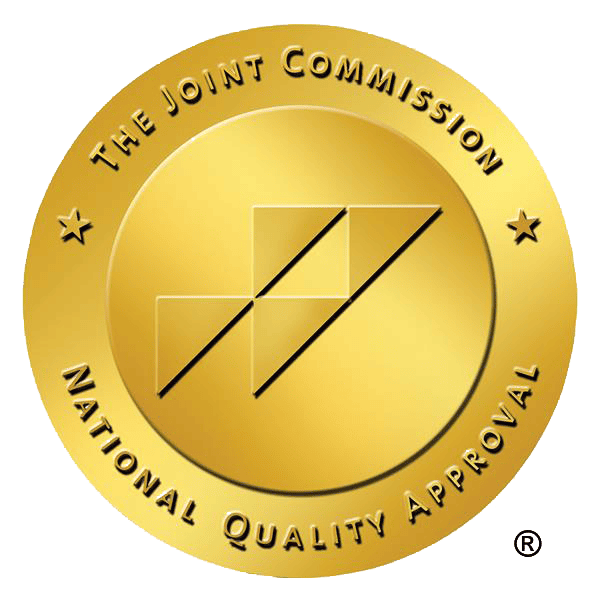At The Prairie Recovery Center, we understand that addiction affects every aspect of an individual’s life, from mental health to relationships and physical well-being. That’s why our Austin addiction therapy program offers comprehensive, personalized support to address the complex needs of those recovering from substance use disorders. By providing evidence-based treatment, a compassionate environment, and a variety of therapeutic modalities, we help individuals overcome addiction and begin the path toward long-lasting recovery.
Person-Centered Care
We believe that no two individuals experience addiction in the same way, and therefore, our addiction therapy in Austin, TX is rooted in a person-centered approach. This philosophy ensures that treatment is tailored to the unique needs, challenges, and goals of each client. Our therapists take time to understand not only the addiction itself but also any underlying mental health conditions, past traumas, and personal circumstances that may be contributing to the problem.
A person-centered approach builds trust and empowers individuals in their recovery journey. So, whether clients engage in group therapy in Austin or one-on-one individual therapy in Austin, they receive a high level of personalized care. Thus, promoting deeper self-awareness and stronger outcomes. Additionally, our team collaborates closely with clients to create a plan that prioritizes their specific recovery goals, whether that’s developing coping strategies, improving mental health, or rebuilding relationships.

Benefits of Individual Therapy for Addiction Recovery
Individual therapy is one of the core components of our Austin addiction therapy program. In these one-on-one sessions, clients have the opportunity to work closely with a licensed therapist to explore the root causes of their addiction and develop personalized strategies for overcoming it.
Here are the benefits of individual therapy for addiction recovery:
- Personalized Attention: Clients receive focused, individualized care that targets their specific challenges and mental health needs.
- Understanding Underlying Issues: Addiction is often linked to underlying mental health disorders, trauma, or unresolved emotional pain. Individual therapy allows clients to explore these issues in a safe and confidential environment.
- Developing Coping Strategies: A critical part of recovery is learning how to handle cravings, triggers, and stressful situations. Individual therapy equips clients with tools and techniques to manage these challenges effectively.
- Confidential and Safe Space: For many, discussing personal struggles in a group setting may feel intimidating. Individual therapy offers a private space to express emotions freely without fear of judgment.
- Building Trust and Connection: Individual therapy builds trust and connection between the therapist and the client. This relationship is essential in supporting long-term sobriety.
- Motivation and Goal Setting: Therapists help individuals set realistic goals, maintain motivation, and monitor progress, providing support and encouragement along the way.
- Relapse Prevention: Individual therapy provides individuals with relapse prevention strategies to identify and navigate challenging circumstances. Relapse prevention is also part of aftercare planning.
- Addressing Co-Occurring Disorders: Therapists can address co-occurring mental health disorders that may contribute to substance use.
- Family Support: Therapy addresses family dynamics and relationship problems that have been affected by addiction. Thus, helping repair and strengthen relationships with loved ones.
Our therapy for addiction combines these elements to ensure that each client receives comprehensive and effective support throughout their recovery journey.

Benefits of Group Therapy in Addiction Recovery
Group therapy is an invaluable part of addiction recovery, offering a variety of benefits to those struggling with substance use disorders. It provides participants with peer support, a sense of normalization and belonging, and the opportunity to learn from others in similar situations. Additionally, it allows for feedback and perspective sharing, as well as skills development such as setting boundaries, communication, and emotional expression. Our group therapy for addiction in Austin also empowers individuals through mutual understanding and empathy among participants.
Besides the many therapeutic advantages of group therapy, it also has practical benefits. It’s generally more cost-effective than individual sessions and can reduce the stigma around addiction by creating a safe space for open dialogue without judgment. Moreover, these social connections created in group therapy can be long-lasting sources of support throughout the recovery journey. These connections are further strengthened by having a trained therapist present who guides discussions and helps foster positive change in the group dynamic.
Group therapy complements other therapeutic interventions such as individual counseling to create comprehensive treatment plans that increase the likelihood of sustained sobriety and improved overall well-being. By bringing together people with different perspectives and experiences into one supportive space, group therapy provides an effective approach to healing from addiction that promotes meaningful progress on the journey toward lasting recovery.
In summary, some of the benefits of group therapy include:
- Peer support
- Normalization of feelings
- Learning from others
- Feedback and perspective
- Social skills development
- Accountability
- Empowerment and empathy
- Real-life practice
- Cost-effective
- Decreased stigma
- Therapist guidance
- Long-term support
Holistic Approaches in Our Austin Addiction Therapy Program
At The Prairie Recovery Center, we understand that recovery isn’t just about addressing the physical symptoms of addiction; it’s also about promoting overall mental, emotional, and spiritual well-being. That’s why we integrate holistic therapies into our addiction therapy program. These approaches complement traditional therapeutic methods and help clients achieve a more well-rounded recovery experience.
Some of the holistic therapies we offer include:
- Yoga: Yoga helps clients reconnect with their bodies, reduce stress, and develop mindfulness. It’s an effective tool for managing cravings and emotional dysregulation during recovery.
- Mindfulness Practices: Mindfulness techniques teach clients to focus on the present moment, which can help them manage triggers, reduce anxiety, and improve emotional well-being.
- Fitness Programs: Regular exercise is an important part of addiction recovery. Physical activity not only helps clients regain strength but also boosts mood and promotes a sense of accomplishment.
By incorporating these holistic therapies, we help individuals not only overcome addiction but also build healthier habits for long-term well-being.
Specialized Therapies for Co-Occurring Disorders
Many individuals struggling with addiction also face co-occurring mental health disorders such as anxiety, depression, or PTSD. Our addiction therapy program offers specialized care for those with dual diagnoses, ensuring that both addiction and mental health are treated simultaneously. Through integrated treatment plans, our therapists help clients manage the complexities of their conditions, improving the likelihood of successful long-term recovery.
One of the benefits of individual addiction therapy is addressing co-occurring disorders. This allows for targeted mental health care that’s aligned with addiction recovery efforts. Our licensed therapists are trained to recognize and treat a range of mental health conditions, providing clients with comprehensive, compassionate care.
The Importance of Family Involvement in Therapy for Addiction
Addiction doesn’t just affect the individual. It impacts their loved ones as well. Family support plays a crucial role in the recovery process. And that’s why we include family therapy as part of our addiction therapy in Austin, TX. Involving family members in the recovery process helps repair strained relationships, improve communication, and create a supportive environment for long-term sobriety.
Family therapy sessions allow loved ones to better understand the nature of addiction, address any unresolved issues, and learn how to provide effective support during and after treatment. By working together, families can become a crucial part of the individual’s recovery journey.





